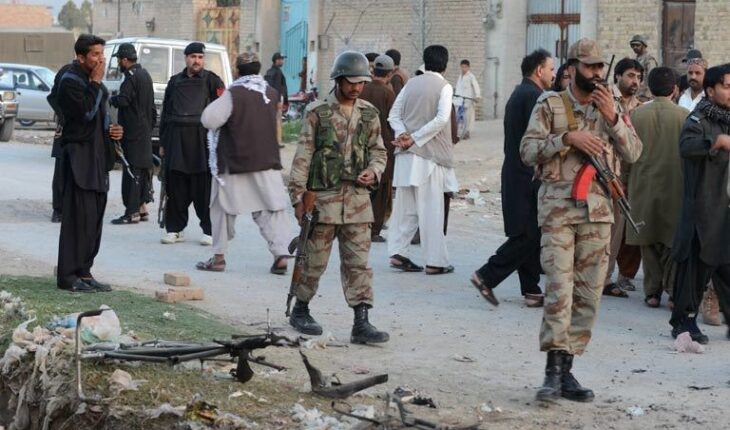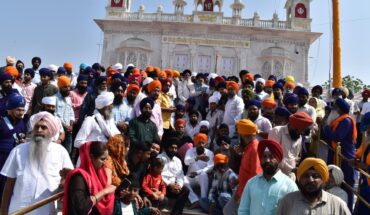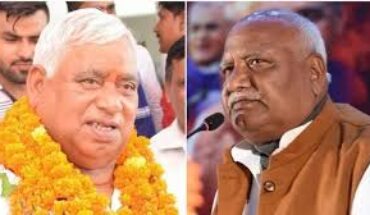The Pakistani establishment, a euphemism for the army, has evolved a unique business model to earn money from each crisis, both domestic as well as in the region..
The country has been suffering a huge financial crunch for the past four years following the exit of the US-led army from Afghanistan. The recent uprising of the Baloch nationalists has opened a new opportunity to get international assistance for crushing the armed rebellion.
Few were surprised, when the army finally decided to crush the demands of
civil liberties and the fundamental rights of the peaceful citizens of Balochistan. Any peaceful solution could have adversely affected the financial bonanza, the confrontation could have brought in for the army, its favorite contractors and politicians.
The decision to go for a military solution to resolve the perennial Balochistan problem reminds the genocide in its eastern wing that had finally led to the secession and the emergence of Bangladesh. In spite of its failure in the military operations, which had led to the surrender of 93,000 soldiers before the Indian army, the hold of the army in West Pakistan had continued. In the ongoing rebellion, Pakistan does not expect any direct intervention of India.
Before embarking upon the campaign against its own people, the men in uniform were upbeat following the ouster of an elected government in Dacca with the help of Islamists or Jamaat -e-islami. With this conviction, the Pakistani army chief, Asim Munir, who could recite the Holy Kuran by heart without the text, has succeeded in enlisting the support of his Corps Commanders at a recent meeting.
Earlier, he had been to China seeking endorsement and support of the Dragon presumably for more funds and liberal supply of weapons and ammunition.
It is believed that General Munir has also been able to get clearance of the generals for the court martial of Faize Hamid, a former chief of the Inter-Services Intelligence or ISI. He has been accused of corruption charges, but it is a non-issue for the army. Its generals luxurious lifestyle after their superannuation could be a cause of envy for the rich across the continents. The main cause, according to the observers of the Pakistani affairs, could be attributed to the conspiracy he had hatched with the former Prime Minister Imran Khan to supersede senior generals, including the present army chief, for perpetually retaining power in the country. With losing the support of the army, Khan had to go,, and face consequences his predecessors had been subjected to.
With the recent success of the Bangladesh army to depose an elected prime minister for 15 years, Sheikh Hasina, with the tacit approval of the US and China by collaborating with Islamists, the GHQ has embarked upon to crush the Baloch nationalists with renewed confidence. It is now ready to assert and retain its unbridled power in the country, which it has been enjoying since its inception in 1947.
Ramifications of the Actions
It is difficult to predict the possible spin offs of the military intervention in Balochistan, the country’s biggest province in terms of its geographical area, but it could become a hotbed of the Geopolitics of great powers. The crucial support of Muslim clergy to the army in protecting the interests of the army too has been crucial for the army. The enlightened civil society of Pakistan, which believes in running with the hare and hunting with the hounds, could not escape the collapse of democracy in the country.
The Indian concern is genuine regarding the civilian uprising in Balochistan. She is being accused of meddling in the affairs of Balochistan.
The conflict is expected to reopen the treasure of the huge funds it had been enjoying during the Cold War era and later during the Afghan War.
It will be for China to escape from the bottomless pit of Pakistani greed. Like the USSR, the Chinese too would be suffering both financially and strategically for meddling in the region. The Afghan conflict finally had led to the fragmentation of the USSR. It is for China to escape from this trap
The Chinese support to Pakistan’s campaign against the civilian rebellion could be an attempt to save its dream project, the China-Pakistan Economic Corridor (CPEC). It already has invested billions of US dollars, but might remain incomplete despite pumping in more funds to Islamabad.
It hopes to repeat the profitable mining
of gold and copper in the province might end up in huge losses, if it supports the military solution.
India’s Epochal Blunder
In spite of our personal admiration for the country’s first prime minister Jawaharlal Nehru, it is difficult to forgive his huge mistakes in conceding Tibet to China, announcing ceasefire in Jammu and Kashmir against the invading Pakistani army without consulting his cabinet. Again, it has never been explained why his government did not accede to the request of the Khan of Kalat, Balochistan, to join the Indian federation.
Lacking a strategic understanding of the importance of India’s sensitive western region, the Indian leadership during the transfer of power genuinely believed in the rhetoric of and non-alignment. The bubble finally burst, when China attacked in 1962. The country could have contributed to the political and stability of the region, if Subhash Chandra Bose had not suddenly eclipsed from the political horizon.
Before transferring power to the favorites in India and Pakistan, the British also ensured that the fighters of Bose’s Indian National Army were not rehabilitated in the army. Both Mahatma Gandhi and Nehru ensured that INA soldiers, who were fighting for a united India were sidelined. They were refused to be rehabilitated in the army. Their abandonment also ensured the division of the secular army of British India without much hassles.
The dumb wits in New Delhi, did have little understanding, many may disagree with this author, about the play of global politics and how the fratricide among Hindus and Muslims are still serving the interests of the former rulers of this region.
It is indeed intriguing that why the mistake of not merging Balochistan in India was neither corrected by the then Prime Minister Jawahar Lal Nehru and his Houne Minister, Sardar Vallabhabhai Patel, even after the statement of a Home Ministry official, V.P. Menon, who had foolishly announced in an All India Radio broadcast on March 27, 1948, that the request of the ruler of Kalat, Balochistan, Mir Ahmadyar Khan, to merge with India has been rejected, Next day, on March 28, Jinnah sent his confidant, Major General Mohammad Akbar to Quetta. Mir Ahmadyar Khan was brought to Karachi to sign the accession to Pakistan, thus India again lost her influence in the region.
The Chinese finally became more assertive in the region, which had become an easy prey of Chinese expansionism, if not imperialism.
Changes in Baloch Society
It is indeed pathetic that few scholars in India care to study the ongoing unprecedented anger against Pakistan and China. The exploitation of minerals in the province during the past four decades has accrued huge profits to the army officers. Apart from the official mining, the Pakistani army and the Chinese companies have also been making substantial gains without showing in their accounts.
Earlier, the erstwhile rulers despite promises of the successive military dictators could not get any financial or political autonomy during the past decades. During the regime of the military dictator, Ayub Khan, instead of allowing provincial autonomy, the country was divided into two administrative units, West Pakistan and the then East Pakistan, now Bangladesh. The provincial autonomy was partially introduced during the regime of the Prime Minister, Z A. Bhutto. Under the new constitution, the provinces were to be given vast powers and the federal government had to retain defense, foreign affairs, currency, postal department etc The provincial leaders, including Wali Khan, son of Abdul Gaffar Khan, the great freedom fighter, and rulers of Sindh and Balochistan were promised that the devolution of power would be completed within 10 years, but the army and it’s political proxies ensured that the real provincial autonomy should never be allowed.
Meanwhile, societal changes through education and working in the Gulf countries have taken place among the tribal people. These changes have created a strong middle class in the region.
The current uprising in Balochistan is now being led by the educated youths. This transformation has erupted in the present uprising. Interestingly, the majority of tribal leaders, who had initially aligned with the Pakistani establishment, too are supporting the freedom fighters.
Gopal Misra has been associated with national and international media. His books on journalism and geo-politics have been well-appreciated. Views are personal.





